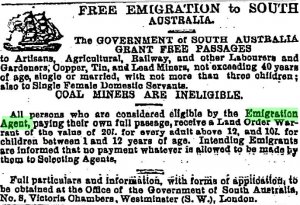Published on June 3, 2016
The British Newspapers series, the most comprehensive digital collection of regional newspapers from across the UK, is a key resource for studying local history. Part V, releasing in March 2016, will soon take the total number of pages covered by the series to over 5.5 million, with an impressive 161 newspaper titles. Academic Adviser to Parts I and II of the series, Dr Martin Conboy, described the series as an ‘enormously rich’ resource, which has already proved of great value to a range of scholars. But why invest in regional and local papers? What makes regional papers valuable to students and researchers?
Local and regional newspapers offer a range of research opportunities, including—through Gale Artemis: Primary Sources—setting national press perspectives against regional titles to understand how opinions on a local level could contrast those on a national scale. The national press provided detailed overviews of key social, political and cultural stories of the day, but there were differences in how these stories were transmitted and received in different localities. The regional element offered by British Newspapers is therefore a vital enhancement to research, complementing Gale’s broad coverage of the national UK press through The Times, The Daily Mail, The Telegraph and more. The case study below, continuing in the downloadable PDF, offers just one example of how local and regional papers in 19th Century British Newspapers can be used to provide a new perspective.

Case Study: British Emigration, from the Late-Nineteenth Century.
Throughout the nineteenth century, it was not uncommon for large numbers of people to emigrate away from the United Kingdom (UK), hoping to find better employment prospects overseas. This movement can almost be split into two parts: the first half of the nineteenth century (characterized by rural emigration) and the second half (characterized by urban emigration). The former part was typified by farmers or skilled artisans and craftsmen from traditional trades, while the latter saw a predominance of young male laborers and agricultural workers.
However, this process was, at times, highly contested. As the articles below will demonstrate, conditions overseas did not always live up to expectations. Despite the desire of ‘Emigration Agents’ and other government officials to encourage emigration, particularly as a resolution to poverty, the variable conditions emigrants encountered on arrival suggest a more somber picture.
By focusing our attention upon a specific period and location – Australia in the 1870s and 1880s – a clear image of the contested ‘emigration trade’ can be gained. Above all, it highlights the differences in viewpoints which existed across the national and regional press, and the benefits to be gained from searching across both.
Continue Reading…[link to PDF]Air Jordan




There is something that is satisfying about reading the local newspaper. It is interesting that the national press will give detailed overviews of social, political, and cultural stories, and then the are transmitted and received differently in each local community. I like that local news provides many stories you would not hear other wise, and it is more suited to your needs unlike that on a national level.